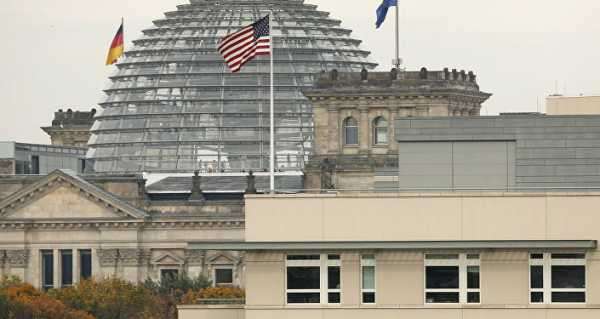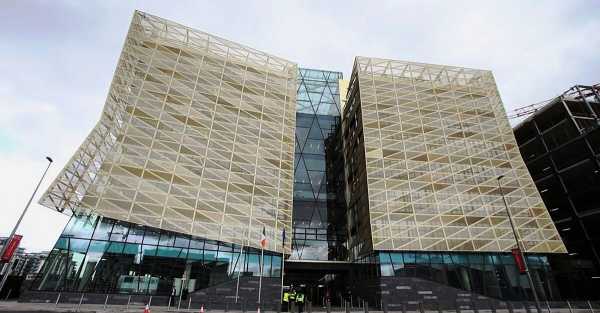
Last week, German media obtained a letter from a group of senior US senators addressed to the management of the German port of Mukran, threatening them with “financial destruction” if they did not immediately stop providing logistical support for the Nord Stream 2 gas pipeline project.
Veteran Bundestag lawmaker and Alliance 90/The Greens coalition leader Jurgen Trittin has likened the recent threats by US senators against the port of Mukran in Sassnitz, northeast Germany to “a declaration of economic war,” and has urged Berlin to take countermeasures.
“The nasty habit of threatening American letters to German companies is growing,” Trittin said in an interview with the German Press Agency (dpa) on Friday.
“Germany and the EU must find a robust response to this US behaviour. This can include the threat of sanctions of [our] own, such as on the import of fracking[-derived LNG] from the USA,” Trittin suggested.
Trittin also took a jab at Chancellor Merkel over her alleged inaction on the matter, pointing out that the port town of Sassnitz, caught in the crosshairs of US senators, is situated in her own constituency. “It’s hard to understand how to explain this continued inaction to the workers of the port,” he said.
The lawmaker’s remarks come in the wake of a letter written by US Senators Ted Cruz, Tom Cotton and Ron Johnson threatening Sassnitz GmbH, operator of Mukran Port, with “financial destruction” if it continued to take part in providing services for the Nord Stream gas pipeline project.

The Russian pipe-laying vessel Akademik Cherskiy, which may be used to complete the construction of the Nord Stream 2 gas pipeline, lies in the port of Mukran, Germany, July 7, 2020
German Business Asks Berlin for Protection
In response to these threats, the German Committee on Eastern European Economic Relations demanded that Berlin and the European Commission react and protect German and European companies from such “attacks by third countries”, and provide them with financial and legal support from extraterritorial sanctions.
Neils Annen, minister of state at the Federal Foreign Office, characterised “the US policy of extraterritorial sanctions against close partners and allies” as “a serious attack on our national sovereignty”, and called the tone and content of threatening US letters against German companies “inappropriate”.
Last week, US President Donald Trump again stepped up his attack on Berlin over its NATO defence obligations and support for the Nord Stream 2 pipeline. “It’s very interesting. We’re supposed to protect Germany from Russia. That’s fine. But Germany is paying Russia billions of dollars for energy. So we’re protecting Germany from Russia. Germany is paying Russia. What’s that all about?” he remarked.
Denmark’s energy agency allowed for the resumption of construction of the Nord Stream 2 pipeline by anchored pipelaying ships in combination with dynamic positioning vessels in early August.
US Lawmakers Prepare New Sanctions
Construction of the €9.5 billion, 1,230 km-long pipeline was halted in December 2019, with just 160 km left to build, after Washington threatened to slap “fatal” sanctions on AllSeas, a Switzerland-based contractor working on the joint Russian-Western European energy project in the 2020 National Defence Authorization Act (NDAA).
Earlier this year, US lawmakers introduced an amendment to the 2021 NDAA to slap new sanctions on the project, with both the House and Senate already greenlighting the initiative.

Nord stream-2
Nord Stream 2 is a joint venture between Russia’s Gazprom and a collection of Western European energy companies including Uniper, Wintershall, Engie, OMV and Royal Dutch Shell. When completed, the pipeline will double the existing Nord Stream capacity to 110 billion cubic meters of gas capacity per year. In late July, German media said there was an added potential benefit from the infrastructure project – the delivery of hydrogen from Russia to Germany to meet growing European demand for the clean fuel.
Sourse: sputniknews.com






